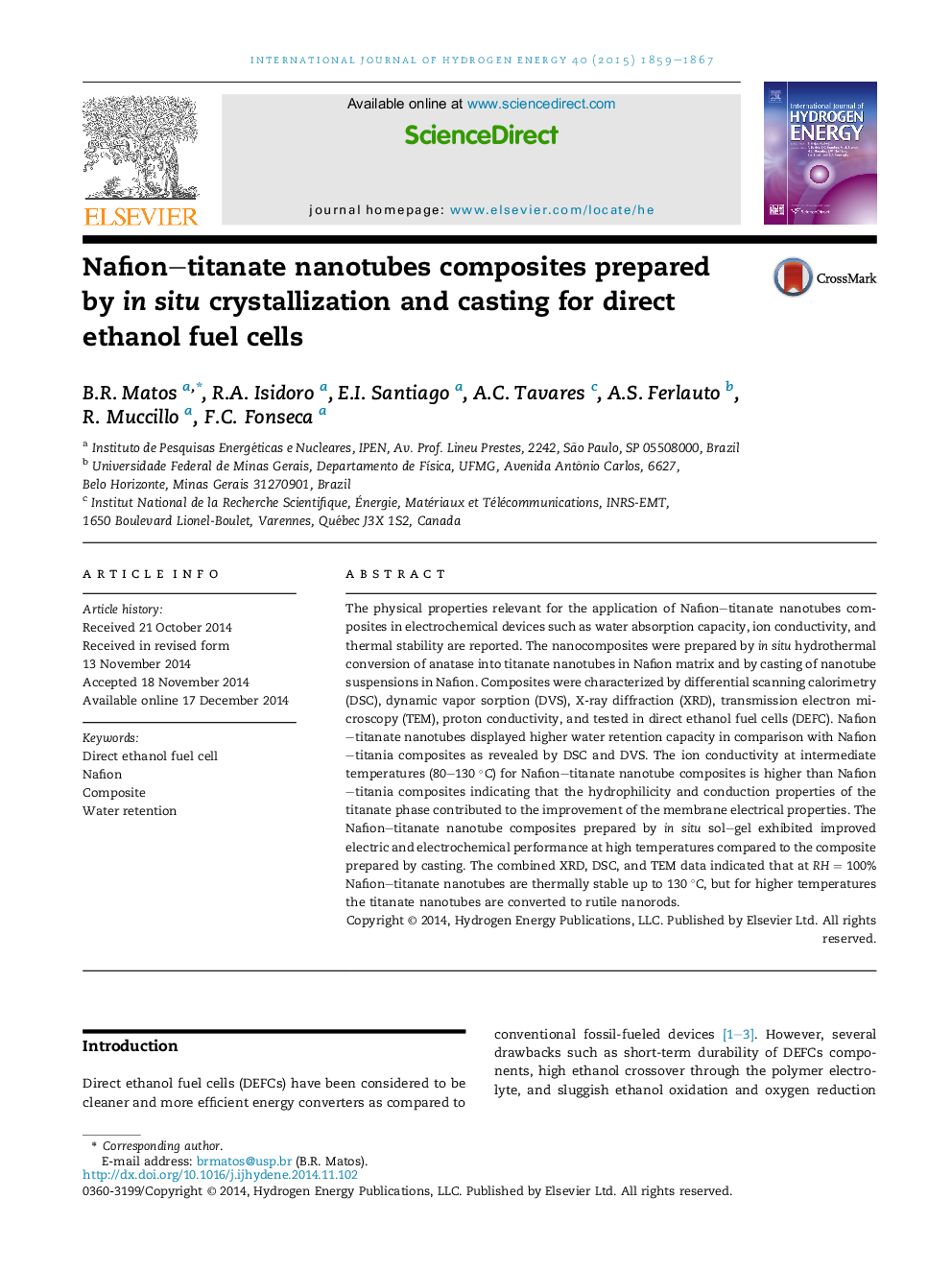| Article ID | Journal | Published Year | Pages | File Type |
|---|---|---|---|---|
| 7716566 | International Journal of Hydrogen Energy | 2015 | 9 Pages |
Abstract
The physical properties relevant for the application of Nafion-titanate nanotubes composites in electrochemical devices such as water absorption capacity, ion conductivity, and thermal stability are reported. The nanocomposites were prepared by in situ hydrothermal conversion of anatase into titanate nanotubes in Nafion matrix and by casting of nanotube suspensions in Nafion. Composites were characterized by differential scanning calorimetry (DSC), dynamic vapor sorption (DVS), X-ray diffraction (XRD), transmission electron microscopy (TEM), proton conductivity, and tested in direct ethanol fuel cells (DEFC). Nafion-titanate nanotubes displayed higher water retention capacity in comparison with Nafion-titania composites as revealed by DSC and DVS. The ion conductivity at intermediate temperatures (80-130 °C) for Nafion-titanate nanotube composites is higher than Nafion-titania composites indicating that the hydrophilicity and conduction properties of the titanate phase contributed to the improvement of the membrane electrical properties. The Nafion-titanate nanotube composites prepared by in situ sol-gel exhibited improved electric and electrochemical performance at high temperatures compared to the composite prepared by casting. The combined XRD, DSC, and TEM data indicated that at RH = 100% Nafion-titanate nanotubes are thermally stable up to 130 °C, but for higher temperatures the titanate nanotubes are converted to rutile nanorods.
Related Topics
Physical Sciences and Engineering
Chemistry
Electrochemistry
Authors
B.R. Matos, R.A. Isidoro, E.I. Santiago, A.C. Tavares, A.S. Ferlauto, R. Muccillo, F.C. Fonseca,
